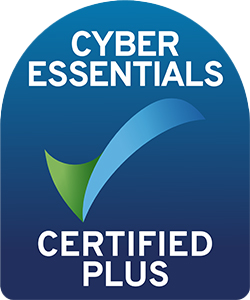Landing your first job after completing your studies is a significant milestone for any electrical engineering graduate. It marks the transition from theory to practice, from learning to doing. This journey, while exciting, can be filled with uncertainties and questions. How do you make sure you stand out? Where do you even begin?
This blog post aims to guide you through the steps to securing your first electrical engineering graduate job, ensuring you start your career on the right foot.
Understanding the Electrical Engineering Job Market
The first step in your journey is to gain a comprehensive understanding of the job market. Including the best times to find relevant vacancies. Electrical engineering is a broad field, encompassing various sectors including power generation, electronics, communication systems, and more. Each sector has its unique demands and trends. Keeping on top of these trends will help you identify which areas are growing and what skills are in demand.
Research is key. Start by reading industry reports and news articles. Websites like IEEE Spectrum can be invaluable for this purpose. They provide insights into emerging technologies and industry shifts. LinkedIn can be a great platform for connecting with seasoned engineers and industry insiders. Most importantly, connecting with a specialist electronics recruitment consultancy such as us can provide you with firsthand industry knowledge and market needs.
Understanding the market is more than just knowing where the jobs are. It’s about identifying where your passion and the market’s needs intersect.
Crafting a Stand-Out CV and Cover Letter
Your CV and cover letter are your first points of contact with potential employers. They should reflect not only your qualifications and skills but also your personality and enthusiasm for the field. Tailoring these documents to each job application is crucial. It shows the employer that you have taken the time to understand what they are looking for.
To make your CV stand out, focus on projects and internships that demonstrate practical skills and knowledge in electrical engineering. Highlight any hands-on experience with circuit design, programming, or relevant software tools. Include any academic achievements or awards that underline your commitment and expertise in the field.
Your cover letter is important and should complement your CV, providing context and adding a personal touch. Use it to explain why you are passionate about electrical engineering and why you are drawn to the company. Be specific about how your skills and experiences make you a good fit for the position.

Networking and Professional Development
In many cases, finding your first electrical engineering graduate job is about who you know as much as what you know. Networking can open doors to opportunities that aren’t advertised publicly. Attend industry conferences, workshops, and seminars. Join professional organisations like the Institute of Electrical and Electronics Engineers (IEEE) to meet professionals and learn about the latest developments in your field.
Don’t overlook the importance of online networking. LinkedIn can be a powerful tool for connecting with industry professionals. Engage with content relevant to your interests, share your own projects, and don’t be shy about reaching out to professionals to ask for advice or insights.
Professional development is a lifelong journey. Consider earning certifications in specialised areas of electrical engineering. This not only broadens your skill set but also makes you more attractive to employers. The Electronics Group can facilitate all of the main IPC certifications as well as various skills based courses.
Gaining Practical Experience
While academic achievements are important, soft skills and practical experience are also crucial for securing your first job. Internships offer valuable hands-on experience and a chance to apply what you’ve learned in a real-world setting. They also provide an opportunity to make industry connections and can sometimes lead to job offers post-graduation.
If internships are hard to come by, consider working on personal projects or participating in competitions. These activities demonstrate initiative, creativity, and the ability to apply theoretical knowledge to practical problems.
Volunteering can also be a way to gain experience. Many non-profit organisations and community projects need electrical engineering skills. This can be an excellent way to get hands-on experience while making a positive impact.
Mastering the Interview Process
The job interview is a critical step in the job search process. It’s your opportunity to make a strong personal impression and demonstrate how your skills and experiences align with the company’s needs. Research the company and the role you’re applying for. Understand their products, services, challenges, and industry position.
Practice your answers to common interview questions, but also be prepared to discuss your projects and experiences in detail. Demonstrating how you’ve solved problems or overcome challenges can be very persuasive.
Be ready to ask questions as well. Inquiring about the company’s projects, culture, and future directions shows that you are genuinely interested in working there. For more useful tips on how to impress in interviews, you can read our full article here.

Exploring Graduate Programs and Further Education
Further education can be a path to specialising in a specific area of electrical engineering or breaking into a highly competitive sector. Graduate programs offer deep dives into subjects like renewable energy systems, embedded systems, or signal processing. They can also provide opportunities for research, publications, and networking with experts in the field.
Consider the return on investment when thinking about further education. While it can open up new opportunities, it’s also a significant time and financial commitment. Therefore, research the job prospects for graduates of the programs you’re considering and weigh them against the cost and time you’ll invest. Some fields may require advanced degrees for entry-level positions, while others may value practical experience more highly.
Engaging with faculty members and industry professionals can provide insights into whether further education is the right path for you. They can offer advice on which programs might best suit your career goals and interests.
Leveraging Technology and Online Resources
Technology has transformed the job search process, and for electrical engineering graduates, being tech-savvy is a given. Make the most of online job boards and career websites specific to engineering and technology fields. Websites like Indeed and Glassdoor can be excellent resources for finding job listings but can take time to filter through. Our specialised recruitment website and team of experts are great resource for finding industry specific jobs.
Social media platforms, particularly LinkedIn, play a crucial role in job hunting today. Maintain a professional profile that showcases your skills, experience, and projects. Join groups related to electrical engineering to stay updated on industry news, participate in discussions, and connect with potential employers. Follow our LinkedIn page for regular updates on our current Electrical Engineering vacancies.
Staying Resilient and Open to Opportunities
The journey to your first electrical engineering graduate job can be challenging. You may face rejection or find that opportunities in your preferred area are scarce. It’s important to stay resilient and keep an open mind. Sometimes, the best opportunities come from unexpected places or sectors. Resilience is just one of many essential soft skills that can boost your chances of landing your dream job, read more about the others you should master, here!
Be willing to consider roles or industries that may not have been your first choice. Each job will provide valuable experience and help you build a network of professional contacts. It’s also an opportunity to learn new skills that can be beneficial in the long run.
Remember, the goal is not just to find any job but to start building a career that will be rewarding both personally and professionally. Keep learning, stay flexible, and don’t hesitate to take calculated risks.
Getting your first Electrical Engineering graduate job with The Electronics Group Recruitment
As experts in the Electronics Industry, we have a large network of connections throughout the country. Connecting talented individuals with the right company’s and roles to match their skills is what we do best. Get in touch with our team today to discuss your requirements and what it is you are looking for. Alternatively, you can get started by taking a look at the vacancies we are currently recruiting for.
Enlisting our help to secure your first electrical engineering graduate job is a wise move and can be the first of many doors to open to you in your career. Working with us you can expect thorough support through every step of the recruitment process. With the right approach, you’ll find that your first job is just the beginning of an exciting and fulfilling career in electrical engineering.


